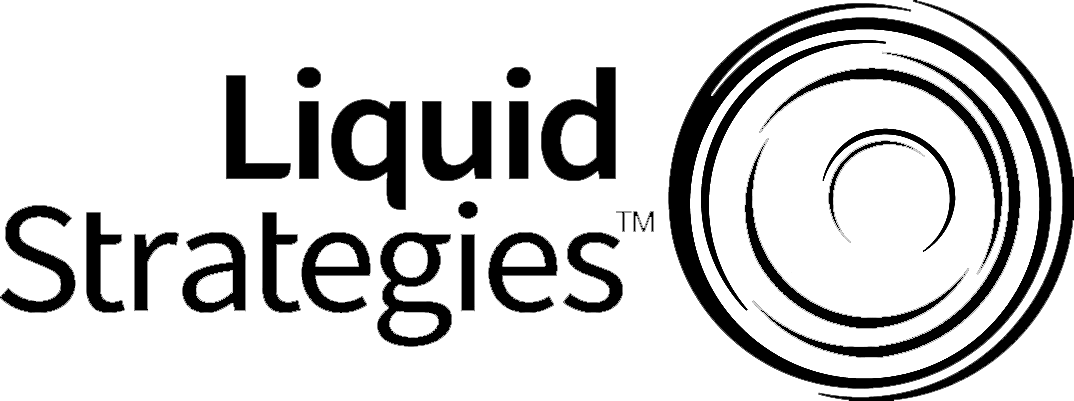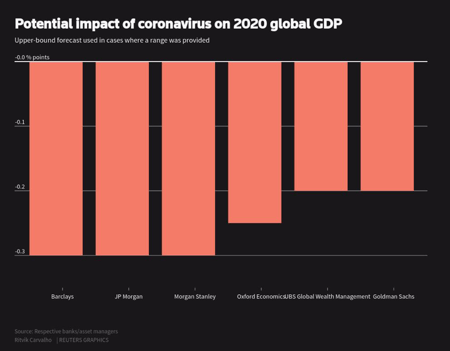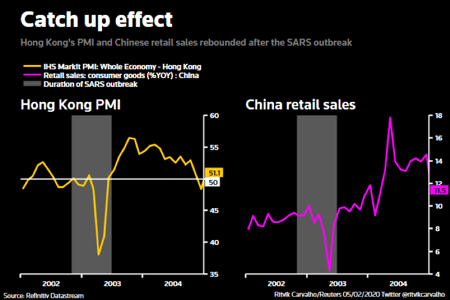Since January, China has been in the grip of the COVID-19 (coronavirus) outbreak. What started as a flu like virus in the Chinese city of Wuhan quickly spread, and at the time of this blog post there were over 75,000 confirmed cases and over 2,000 deaths. While this strain of coronavirus is not necessarily considered a death sentence, it is highly contagious and has quickly spread amongst the population, reaching into over 30 countries including the United States. The virus currently shows signs of up to a 24-day incubation period and carriers can be contagious even before they begin to show symptoms. As it spreads to different continents and countries, what does this mean for the global market?
Most banks and asset managers have predicted the coronavirus outbreak will reduce the global gross domestic product by 0.2-0.3 percentage points.
According to Reuters, analysts expect the outbreak to cause significant damage to China’s growth in the first quarter and hinder their global trade for months to come. The SARS virus in 2003 showed China’s retail sales and Hong Kong’s PMIs both fell during the spread of the disease and recover shortly after the outbreak was contained.
Strategists at Danske Bank are hopeful the spread of the virus slows down in February and is contained by early second quarter, however, entering the 6th week of the epidemic the WHO says it’s too early to tell if the virus is slowing down.
While pharmaceutical companies have done well during the outbreak, with medical face masks and coronavirus test kits flying off the shelves, other industries are seeing a slowdown in growth. Travel, tourism, hospitality and luxury items have taken a hit in the first quarter. Companies such as Nike, Yum Brands and Wynn Resorts, to name a few, have lost sales in the first quarter due to travel restrictions and the disruption to Chinese manufacturers. These effects are rippling through global supply chains and making it difficult for companies to not only operate, but also obtain critical parts for products like cars and smartphones.
With market anxiety being high, what does this mean for Liquid Strategies? Our overlay strategy can actually benefit from anxiety in the market. When anxiety increases, implied volatility increases as well. We sell below-market puts rather than calls because the implied volatility is higher, providing greater premium income potential. This increase in implied volatility typically adds to our strategy’s success. As long as there are no sharp ups followed immediately by sharp downs, volatility is our friend.
If you would like to follow COVID-19 updates, Johns Hopkins has created a real time dashboard you can access here.
Sources:
https://www.nytimes.com/2020/02/07/business/coronavirus-business-impact.html
https://www.businessinsider.com/coronavirus-face-mask-safe-prevention-2020-2
https://www.news-medical.net/news/20200213/Is-the-coronavirus-disease-outbreak-slowing-down.aspx
Learn more about Liquid Strategies and our offerings.
The assertions and statements in this blog post are based on the opinions of the author and Liquid Strategies. The examples cited in this paper are based on hypothetical situations and should only be considered as examples of potential trading strategies. They do not take into consideration the impact that certain economic or market factors have on the decision making process. Past performance is no indication of future results. Inherent in any investment is the potential for loss.



